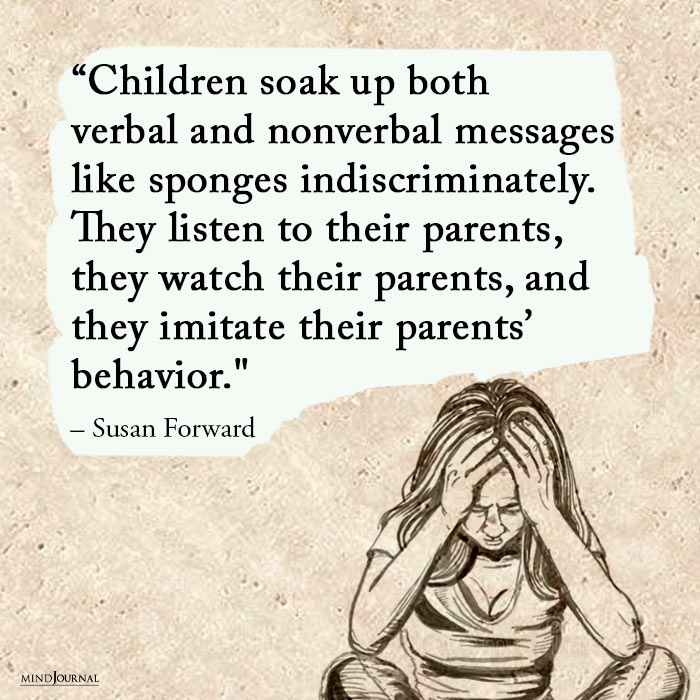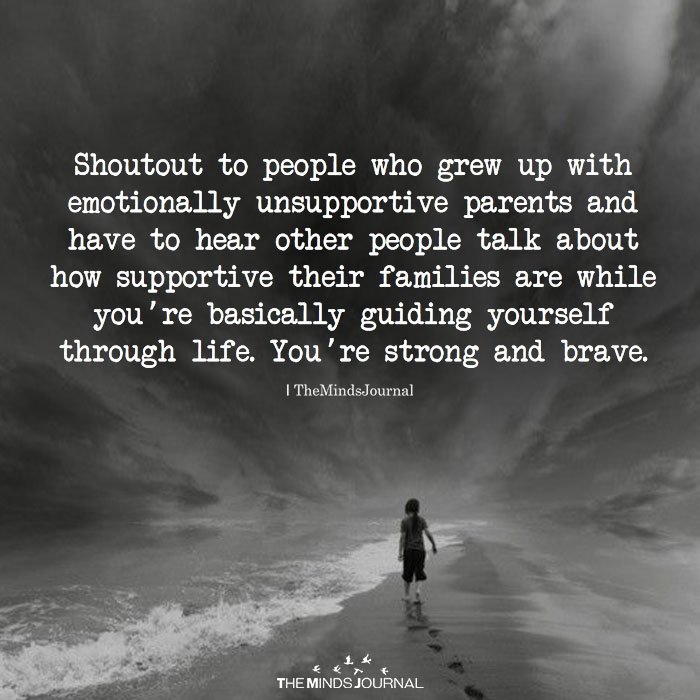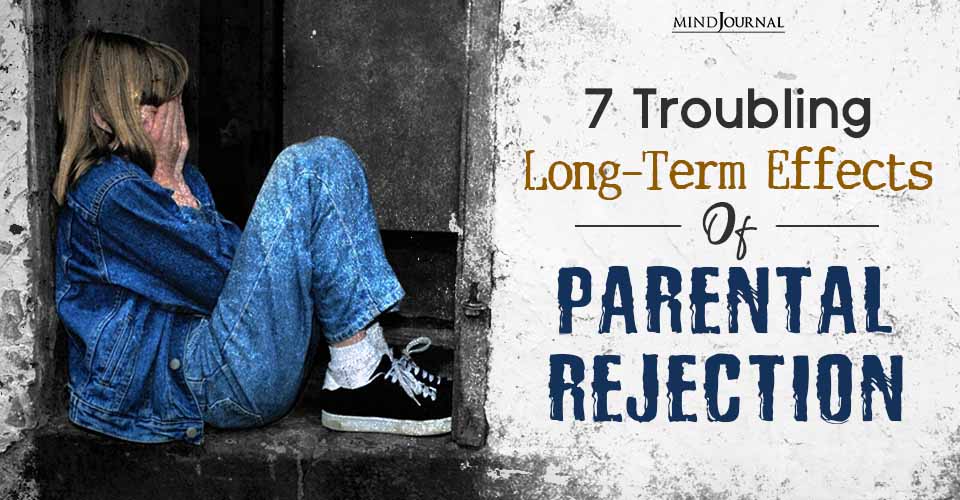Have you moved past the trauma of parental rejection far behind or does it still overshadow your adult life? Here are some effects that might help you understand your situation better.
Being snubbed by our parents during our formative years is one of the most traumatic experiences of life. We are biologically wired to believe that we can depend on our parents for our security and well-being and when a dismissive or emotionally distant parent shatters this belief we are forced to face the dark reality of parental rejection.
What Is Parental Rejection Trauma?
Parental rejection is denying or withholding unconditional and consistent parental love, care, and support toward a child by one or both parents. Such parents can be one or all of the following:
- Dismissive
- Emotionally Distant
- Hurtful
- Abusive
- Hyper Critical
- Hostile
- Aggressive
- Indifferent
- Negligent
It is natural for children to seek validation from their parents and when they face parental rejection, they keep trying harder and harder to win their parent’s approval, which never comes.
If you too have endured a, chances are you have developed some deep-seated beliefs about yourself that are detrimental to your self-esteem. You might not even be aware but these belief systems can have long-term implications even after you step into adulthood. So, let’s have a look at how the long-term effects of parental rejection can potentially sabotage your life and relationships.
Read: Parental Gaslighting: 5 Ways Parents Gaslight Their Children And Break Their Hearts
7 Long-Term Effects Of Parental Rejection Trauma

Here are 7 troubling signs that the consequences of parental rejection are still affecting you as an adult.
1. You Always Assume The Worst About Others
Automatic thoughts that come to our mind give away our beliefs and how our mind perceives us and the people around us. For example, after meeting someone new for the first time what type of thoughts come to your mind?
Do you inadvertently wonder “Why someone so interesting like him/her would be into me?” Or “I bet they have an ulterior motive”? These are negative automatic thoughts that have developed way back in your childhood as a result of parental rejection and if unchecked they can ruin your relationships.
2. You Can’t Let People In
Do you often find yourself turning down offers to go out and meet people? If you tend to avoid making new connections or maintaining the existing relationships in your life, then it is a burning sign that parental rejection is affecting your life. You are avoiding close relationships because subconsciously you believe that it is the only way to save yourself from getting hurt and from further rejections.
3. You Can’t Compromise Easily
Due to parental rejection, you had to learn to rely on yourself at a very tender age. You felt insecure and could not trust anyone. This has eventually made you overtly independent. Now as an adult, you focus more on yourself and care less about others’ feelings, making it hard for you to develop skills such as compromise, which is vital in any relationship.
4. You Struggle With People-Pleasing Tendencies
On the other end of the spectrum is the people-pleasing tendency which is also an effect of parental rejection. If while coping with parental rejection as a child, you chose to go an extra mile to win over your parent’s love, you might be at the risk of becoming a people-pleaser.
You had to prove your worth and struggled hard to make your parents take notice of you. If as an adult, you compulsively try to make everyone happy by going out of your way, you are still carrying that emotional baggage.
5. You Cannot Trust Others
Due to parental rejection, you never could open up as a child. Your parents quelled your every expression of emotional need and thus you became wary of sharing your feelings with anyone. As a grown-up, you might feel uncomfortable sharing your vulnerabilities with your partner or friends.
If you can’t trust others with your emotional needs, get overwhelmed by your own feelings, or try to suppress them, then the long-term effects of parental rejection are making you develop insecure attachments in your relationships.
Read: 4 Types Of Attachment Style
6. You’re Plagued With Self-Doubt
Being rejected and ignored by parents affects a child’s self-image. The spurned child starts believing that they are not worthy of love and that there’s something inherently wrong with them. Without therapy or any other intervention, this thinking pattern might extend well into their adult life.
If you always wonder whether you are good enough for your partner or whether your friends really care about you or not, you are insecure in your relationships. You might also worry that your loved ones will leave you sooner or later. This fear of abandonment clearly stems from your childhood experience of parental rejection.
7. You Find It Difficult To Love And Nurture
Your parent didn’t provide you with love, care, and nurturance when you needed them the most. They might have shunned their responsibilities as a parent or they themselves didn’t know how to be emotionally supportive of their children. In any case, you never knew unconditional and stable love as a child and now as an adult, you still cannot figure out how to offer the love and care that you never received.

How Does Parental Rejection Affect A Child?
The effects of parental rejection on a child can be severe. The child might suffer from:
- Fear of attachment
- Identity crisis
- Lack of direction
- Selfishness
- Mental Disorders
How Do You Overcome Parental Rejection?
The following tips will help you in overcoming parental rejection and developing healthy relationships:
- Be your own parent and treat yourself the way you wanted to be treated as a child.
- Instead of running away from your trauma, introspect and analyze the dysfunctionalities in your relationship with your parents.
- Don’t suppress your emotions.
- Don’t blame yourself.
- Take initiative to make new connections that will enrich your life
- Lay down strict but healthy boundaries so that your parents cannot manipulate your adult life as well.
- Try to identify the manipulation techniques or the toxic behavioral patterns of your parents.
- Distance yourself from the parents who make you feel insignificant.
- Seek therapy or consult a mental health professional.
One Foot In Front Of The Other

Neurological studies have shown that rejection affects the same part of the brain that gets activated when triggered by physical pain. Essentially, the pain of rejection is no less than a physical injury.
The emotional damage caused by toxic, distant, and dismissive parents will not go away easily. But you can heal from these negative emotions if you dedicatedly work on your insecurities and dig deep into your subconscious.
You can seek therapy or talk to a trusted friend or your partner to undo the long-term effects of parental rejection. Be patient with yourself and take baby steps toward a more fulfilling life.
Frequently Asked Questions (FAQs)
How do parents reject their children?
Parents reject their children by not being physically and/or emotionally available to them. Withdrawing love and care by a parent toward their child is termed parental rejection.
What happens when a parent rejects a child?
Children rejected by their parents exhibit low self-esteem and are highly insecure in their relationships. Their validation-seeking from others often translates into poor life choices.
What is childhood rejection trauma?
Rejection by parents or peers during childhood can be extremely painful. These experiences can become traumatic and have long-term psychological effects on the child.












Leave a Reply